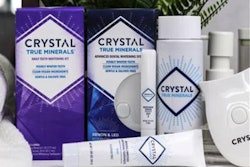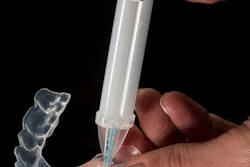
One of my patients sent me an email with this question: "What can I do to get my teeth really white, really fast?"
My quick answer was, "You might want to consider an in-office, teeth-whitening procedure that uses a peroxide gel and a proprietary blue light to quickly and effectively whiten your teeth."
But, if the patient wrote, "What do you think of teeth whitening, and should I do it?" Well, in that case, I would have a whole lot more to say.
Why whiten?
I tell my patients that teeth have a natural color. Chalk white, which is the goal of some people, is not a natural tooth color. But, some people have teeth that are naturally darker than other's teeth. Also, teeth can stain for various reasons. Most darker teeth can be lightened with teeth-whitening techniques.
 Alvin Danenberg, DDS.
Alvin Danenberg, DDS.So, I ask them, "Why do you want your teeth whiter?"
Certainly, if a person wants to get a brighter and whiter smile for a special occasion like a wedding picture, then (for all the right reasons) I advise them to have their teeth whitened with an in-office, teeth-whitening procedure that will produce a beautiful result relatively quickly. I caution them that their mouth should be examined by a dentist to be sure it is healthy before this procedure is done. I also tell them that if they want a brighter smile than they currently have, teeth-whitening also may be for them.
However, I have to remind them that these bleaching procedures will only lighten natural teeth, not change the color of existing filings, crowns, or veneers. The practical result is that, after their natural teeth are whitened with a bleaching procedure, any artificial surfaces on their teeth would look darker compared with the natural teeth.
If they want this level of brightness all the time for their natural teeth, they may need to repeatedly touch up their newly created white smile possibly with bleaching trays and gels or bleaching strips.
Potential harm
What are the drawbacks you should consider discussing with your patients?
Peroxides may be a problem. A study published in the Australian Dental Journal (March 2017, Vol. 62:1, pp. 58-64) is the first research study that investigated the systemic effects of 9% peroxide whitening gels placed into bleaching trays and then inserted on the upper and lower teeth in the experimental group. The trays were worn by 23 subjects in this study for 30 minutes each night for 14 consecutive days. Blood samples were taken before the study began and then after the 14-day trial. The blood tests showed a significant increase in three specific biomarkers for systemic oxidative stress.
“I tell my patients that teeth have a natural color.”
Oxidative stress is a chronic process in the body that could contribute to disease in virtually every organ. Excessive oxidative stress leads to chronic inflammation, which can lead to many various chronic diseases over time. The cause of the observed oxidative stress in this study was probably caused by peroxide that was either swallowed and then entered the gut or permeated through the gum tissues and then entered the systemic circulation.
My concern is that frequent and long-term use of at-home bleaching protocols using peroxides might eventually lead to chronic diseases as a result of oxidative stress created by peroxide. Like most things in life, moderation may be the critical key.
I advise my patients that eating nutrient-dense foods will allow natural remineralization of any damaged enamel surface. It is possible that peroxides could cause significant gum irritation or root sensitivity. Most of these uncomfortable side effects will resolve in a short period of time. Rarely, these side effects could last a long time.
Bottom line
There is no health benefit to whitening teeth. This is a procedure that creates a purely cosmetic result. However, this result is highly beneficial to a person's self-esteem, which is essential. But a few caveats remain:
- Teeth-whitening protocols can cause tooth root sensitivity and gum irritation that is usually short-lived but, in rare cases, may last a long time.
- Whitening is not permanent. Eating foods that stain the teeth will darken the shade of your pearly whites, which will require more teeth-whitening procedures to return them to a whiter shade.
- Teeth whitening will not whiten existing dental fillings, crowns, or veneers.
- Using peroxide gels in trays or strips on a repeated basis over a long time may actually cause significant harm to your body's immune system and result in various chronic diseases.
A version of this column first ran on Dr. Danenberg's blog. DrBicuspid.com appreciates the opportunity to reprint it. His book Crazy-Good Living from Elektra Press is available here.
Alvin Danenberg, DDS, practices at the Bluffton Center for Dentistry in Bluffton, SC. He is also on the faculty of the College of Integrative Medicine and created its integrative periodontal teaching module. He also spent two years as chief of periodontics at Charleston Air Force Base earlier in his career. His website is drdanenberg.com.
The comments and observations expressed herein do not necessarily reflect the opinions of DrBicuspid.com, nor should they be construed as an endorsement or admonishment of any particular idea, vendor, or organization.



















